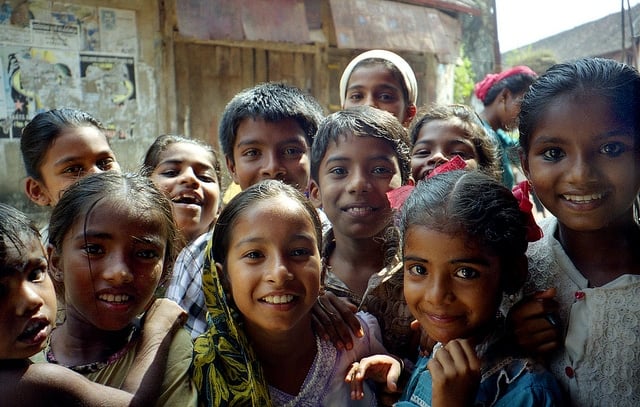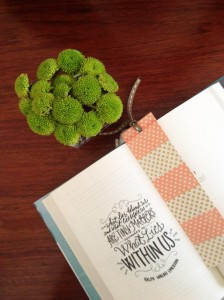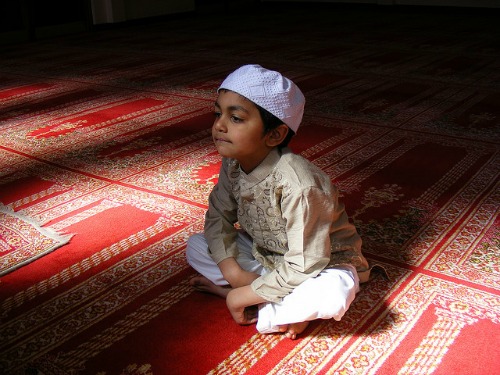
by Susie Newday (Israel) | Sep 3, 2014 | 2014, Being Thankful, Inspirational, Israel, Life Lesson, Motherhood, Susie Newday

Sometimes I laugh at myself. Sometimes I scold myself. On occasion, I love myself. Mostly, I just don’t understand myself.
I have a good life. I’m healthy, I have a great husband, 5 amazing kids, a job helping people (which I do wish paid more money, but oh well), a house, a car, hobbies and so much more.
I also see first hand, especially at work, the suffering and the heartache people go through and the resilience and determination they show. Yet for some reason I can’t seem to find the right way to live a consistently grateful life, in my daily actions not just in my head.
I am grateful for my life. Logically, I know that and I really believe that. Yet I can’t seem to translate that into a life of consistent happiness and acceptance of what is.
There are some people who live a life of gratefulness, through good times and bad times. They are people whom I envy because they’re grounded, they have direction and their entire being, not just their logical head, feels their daily consistent gratefulness. I have spent hours and days trying to figure out how to become one of those people. Just when it seems like I might be moving in the right direction, life throws a curveball and hits me in the head.
Yet even then, every so often, that curveball shows me a glimpse of an answer. Like when I wonder if maybe love is the answer. Maybe the key to gratefulness is learning to love yourself, with all your flaws, real and imagined. Because how can you be grateful for anything else if you are not grateful for the wonder that is you, with all its imperfections.
I ponder and think about it, but I’m not sure and for me, loving myself is such a hard task. Because I’m critical and at first glance all that I see is what needs to change. All that is wonderful and good takes second place.
But maybe, just maybe, “gratefulness=love of self” is the equation for a happy fulfilling life.
What do you think? How do you learn to live gratefulness, in your heart and in your being, not just in your head? How do you learn to love yourself?
This is a poem I had written a while back that I happened across and made me think about this whole topic again.
It’s irrational the way the mind and heart are miles apart.
Is it the heart leading the mind or the mind tugging at the heart?
You know you’re a good person,
You know there are things you do well
Yet there’s that voice in your head
Repeatedly making you doubt every step.
You know you have so much to be grateful for
You know you should be living each day at peace
At peace with yourself, your surroundings
Your choices, your mistakes and your life.
But your heart tugs at your happiness
Because it doesn’t believe your mind, eyes and ears.
And your heart contracts and beats dissatisfaction
Pumping envy to every vein, artery and cell.
You know the truth
You know the logical smart choice
But the bridge between knowing and feeling
Can’t seem to be crossed.
So you do more and more
To try to narrow the divide between mind and heart
But doing brings a short lived peace
Till the chasm widens again.
You do to feel
But you miss the point
Doing without gratitude
Just makes you feel even emptier than before.
“Mind and Heart” ©2014 Susie @NewDayNewLesson
Susie Newday is a happily-married American-born Israeli mother of five. She is an oncology nurse, blogger and avid amateur photographer.
Most importantly, Susie is a happily married mother of five amazing kids from age 8-24 and soon to be a mother in law. (Which also makes her a chef, maid, tutor, chauffeur, launderer...) Susie's blog, New Day, New Lesson, is her attempt to help others and herself view the lessons life hands all of us in a positive light. She will also be the first to admit that blogging is great free therapy as well. Susie's hope for the world? Increasing kindness, tolerance and love.
You can also follow her Facebook page New Day, New Lesson where she posts her unique photos with quotes as well as gift ideas.
More Posts - Website
Follow Me:






by World Moms Blog | Aug 28, 2014 | 2014, Awareness, Being Thankful, Childhood, Cultural Differences, Culture, Domesticity, Education, Eye on Culture, Family, Grandparent, Guest Post, Home, India, International, Kids, Life Lesson, Motherhood, Nutrition, Parenting, Relationships, Traditions, World Motherhood, Younger Children
 Motherhood is one of the most beautiful experiences of a woman’s life. Raising children makes life full. I am raising my children in India and I feel that the environment in India helps a lot in inculcating a strong set of values.
Motherhood is one of the most beautiful experiences of a woman’s life. Raising children makes life full. I am raising my children in India and I feel that the environment in India helps a lot in inculcating a strong set of values.
I read a lot about the many ways children are raised in various parts of the vast Indian subcontinent. Here are some of the enriching reasons I find raising a child in India so wonderful:
1. Family Help: India is a country where the joint family system is prevalent. Children grow up having a lot of fun surrounded by generations of Grandparents, Uncles, Aunts and Cousins. This helps the child in her personal growth and instills great concepts like teamwork and adjusting to different kinds of people, with different mindsets. It also helps a child understand how to receive and give unconditional love.
Sadly, the joint family is breaking up nowadays and giving way to nuclear families. The nuclear family comprises of just the husband, wife and children. Sometimes, the husband’s parents come to stay. This helps build a strong bond between the children and the grand parents, which should be encouraged. The child will learn to respect traditional values which are an integral part of the Indian social fabric.
2. Learning to Respect Your Elders: Indian children are taught to respect their elders and extended family at a young age. Being around so many family members, children learn to show respect and love to one and all when they grow up. Some communities in India make it compulsory for the young people to touch the feet of the elders as the mark of reverence.
This custom is rarely found in any other culture across the world. This custom is instilled in the child’s mind from a very young age and it becomes second nature. This custom hasn’t changed even after western ideas and practices stealthily crept into India.
3. Kids Are Taught How to Save: Children in India are taught to save and not spend unnecessarily. Due to the conservative economy, Indian children learn at a very young age to prioritise their expenses. They learn to buy things which will give them value for money.
Nowadays many banks offer the option to open minor accounts for very small children. Instead of having children save their pocket money in piggy banks, they can save it in real banks. This teaches the child banking procedures at a very early age. Children can even maintain a separate copy for calculating the total expenditure. This will teach the child that it is not good to waste money.
4. Family Values: Children are inculcated with strong family values as they grow up among numerous family members. These family values help develop strong moral fiber. In the long run, they help in creating a strong personality which helps in their growth.
5. Character Development: Character defines how the child leads a holistic life. Parents in India work hard on character building for their child. Since all parents’ desire that their child grows up to become an honest and good human being.
6. Spiritual Discipline: Indian children are raised with enormous spiritual discipline. India is the land for spiritual growth and developing the spiritual qualities in a child helps him/her grow up to be a better individual. Children are taught about the importance of religion and customs. They are also taught to respect other religions as well, since the common idea of all religion is to achieve peace, moral strength and happiness.
7. Freedom When They Play: There is no requirement for an organized play time. A child will always find a group of children playing outside his house. So they can always find fun. They can step out any moment and experience a joyous playtime. Open spaces or children’s parks are still there and are not encroached by developmental activities and high rises.
8. Sharing and Caring: There is a lot of sibling bonding in Indian families. Parents teach children tolerance towards each other, love and patience. By sharing and caring for each other, this turns them into well-adjusted human beings.
9. Celebrating Traditions: India has one of the richest cultures which dates back more than 5000 years. So India is a land of festival and colors, cliché as it may sound, it is true. These celebrations are elaborate. All the kids are involved in the celebration of the festivals with the other children in the community. The children celebrate the festivals with their families and extended families.
10. Healthy Eating Habits: Emphasis is laid on eating healthy food. Children are allowed to eat junk food once in a while, but mothers cook at home. They are happy to feed the children with home cooked food. This makes the child health conscious. Mothers teach their children to choose healthy fresh fruits and vegetables. This also increases their knowledge about what is good for them.
The above stated facts hold true for a small portion of the Indian population, as the phrase goes ‘the privileged few’. Economically, India has progressed considerably in the last 60 years. The bigger picture, however, is quite different: a farmer hangs himself from a tree because he cannot provide for his family; a child is shunned from temples and public places due to his lower caste label; the rampant poverty in villages and lack of health amenities lead to reduced life expectancy; more children are seen carrying bricks and working in factories than in classrooms. These are children who don’t have access to formal education at all.
But for increasingly more kids, growing up in India is a blissful experience which helps them develop into amazing individuals. The calmness of spirit and the enriching environment in India is what gives these children an opportunity to explore life and themselves. The liveliness of the child is based on the amazing cultural forum that the Indian child inherits.
In contrast, malnourished children peddle the streets and somehow make a living. They are deprived of things that my child claims as basic rights. We have small children selling chai when they should be drinking a warm glass of milk instead. Yet from children like these, a leader has emerged – Narendra Modi. The contradictions and ironies of my country keep me enthralled. I trudge forward in earnest hope that my child will triumph in all spheres of her life.
Also, the technological development and fast paced life have made us so busy that we are finding less and less time for each other but still Indians never forget to smile at one another. Children brought up in India will never lose heart, since they have learned to struggle and attain victory in all fields of life. But to make that happen, we need to remember the wisdom Dr. Seuss imparted:
“Unless someone like you cares a whole awful lot, nothing is going to get better. It’s not.” — The Lorax
The image used in this post is credited to Ryan Ready. It holds a Flickr Creative Commons attribution license.
This is a first-time, guest post from Aradhana, a mother in India. Aradhana also is a passionate writer, who focuses on topics like yoga, wellness, health and lifestyle. She has contributed posts to Natural News, Wiki How, MomJunction, and Elephant Journal. Through her writings, she hopes to motivate people to develop healthy habits and adopt natural ways of living to achieve sound health.
World Moms Blog is an award winning website which writes from over 30 countries on the topics of motherhood, culture, human rights and social good. Over 70 international contributors share their stories from around the globe, bonded by the common thread of motherhood and wanting a better world for their children.
World Moms Blog was listed by Forbes Woman as one of the "Best 100 Websites for Women 2012 & 2013" and also called a "must read" by the NY Times Motherlode in 2013. Our Senior Editor in India, Purnima Ramakrishnan, was awarded the BlogHer International Activist Award in 2013.
More Posts

by Meredith (USA) | Aug 22, 2014 | 2014, Awareness, Being Thankful, Communication, Family, Kids, Life Lesson, Motherhood, Parenting, USA, World Motherhood, Younger Children
 We have heard the word “gratitude” many times in our daily language. Some people have devoted blogs to it and others have a gratitude journal which they may write in daily. But how often do we actually take the time to really think about what gratitude means? How often do our own children understand the concept of gratitude? According to Dictionary.com, Gratitude is “the quality or feeling of being thankful or grateful”. (more…)
We have heard the word “gratitude” many times in our daily language. Some people have devoted blogs to it and others have a gratitude journal which they may write in daily. But how often do we actually take the time to really think about what gratitude means? How often do our own children understand the concept of gratitude? According to Dictionary.com, Gratitude is “the quality or feeling of being thankful or grateful”. (more…)
Meredith finds it difficult to tell anyone where she is from exactly! She grew up in several states, but mainly Illinois. She has a Bachelor of Science degree in Elementary Education from the University of Illinois at Champaign/Urbana which is also where she met her husband. She taught kindergarten for seven years before she adopted her son from Guatemala and then gave birth to her daughter two years leter. She moved to Lagos, Nigeria with her husband and two children in July 2009 for her husband's work. She and her family moved back to the U.S.this summer(August 2012) and are adjusting to life back in the U.S. You can read more about her life in Lagos and her adjustment to being back on her blog: We Found Happiness.
More Posts

by Martine de Luna (Philippines) | Aug 21, 2014 | 2014, Being Thankful, Domesticity, Life Lesson, Motherhood, Parenting, Philippines, Pregnancy, World Motherhood
 Hello, world moms everywhere!
Hello, world moms everywhere!
Wow, it’s been quite a blogcation, hasn’t it? In other parts of the world, it’s been a long and lazy summer, but for us here in the Philippines, it’s been a wet, sometimes troublesome monsoon season. Earlier in July, one of the worst typhoons hit the city of Manila (where I live), Typhoon Rammasun (called “Typhoon Glenda” by Filipinos). Several of my friends were affected; some even lost parts of their home, roofs, belongings. Others had no electricity for days, some as long as a week.
Yes, it was a difficult July for all of us here in my country. But thankfully, somehow we are alright. If you look around Manila now, there are still signs of damage. However, you will also see the smiles of our people, redolent with possibilities. Despite a harrowing monsoon season, our nation chugs on. Not without inconveniences, of course, but we manage.
I don’t know, but it’s a Filipino trait, I think. I guess our people are so used to hardships and difficulties, sometimes we just wait for them to blow over and just press forward. Of course, this is no excuse for our local government units, those responsible for the effective drainage of the annual heavy rainwaters, and the management of the city’s emergency facilities and evacuation centers. There is much to grumble about. Our government has been “awarded” as number one of the ten most corrupt countries in Asia — obviously something I’m not happy about. 30 million of our people live below the poverty line, meaning about 40 percent of our population has no adequate food rations, shelter, or access to public education.
I could go on about how much must has to change in my country. But I won’t. We have the news and social media for that.
I suppose it is because I am pregnant with my second child. As of this post for World Moms Blog, I am 16 and a half weeks along the way. I had a rocky first trimester, and am just settling into the apparent comforts of the second trimester. I am hoping and praying for a peaceful one! I’ll definitely need it so that I can work and continue to contribute to our family income.
Because I’m expecting, I can’t help but sometimes worry at how different my world is now, compared to when we had Baby #1 (who is now four years old, can you believe?). Things are definitely more challenging now: I’m older, as is my body (biological clock concerns); I seem to be busier now with work, compared to my first pregnancy (because I work from home now); financially, things are more of a concern now, with no healthcare provided for freelancers like me (Dear God, please provide). What concerns me the most is my eldest: Will I be able to show him how to be a good brother? How will we afford two kids? How, how, how?
So right now, I’m trying to see things with more positivity. But it doesn’t stop there. I want to see through to the heart of my apparent setbacks and see what I can make of them. You know what I mean? I want to — as Max Lucado says — probe and explore a problem, and eventually use it.
It’s the same with my outlook on my country. I could nitpick and worry over our national problems, or I could probe, explore and use those problems towards solutions. Every little bit of potential counts!
I want it to be the same with my pregnancy. I have resolved to look my problems in the face and challenge them head on. It’ll be harder because of my condition, but my gumption doesn’t want to fail me! I’m hoping that as I work, homeschool, rest, pray, read, keep my home, et al., that I will be able to create possibilities.
I have to. It has to start with me. Don’t you agree?
How about you, moms? How do you deal with apparent setbacks, in your own world? What do you do to press forward?
This is an original post by Martine de Luna for World Moms Blog. Photo credit goes to the author. Please visit Martine’s blog at www.makeitblissful.com. You can also work with her, if you want to create blogs or websites for your business, just connect with her at www.martinedeluna.com
Martine is a work-at-home Mom and passionate blogger. A former expat kid, she has a soft spot for international efforts, like WMB. While she's not blogging, she's busy making words awesome for her clients, who avail of her marketing writing, website writing, and blog consulting services. Martine now resides in busy, sunny Manila, the Philippines, with her husband, Ton, and toddler son, Vito Sebastian. You can find her blogging at DaintyMom.com.
More Posts

by Ecoziva (Brazil) | Aug 4, 2014 | 2014, Body Image, Brazil, Food, Life Lesson, Maternal Health, Nutrition, Traditions, World Motherhood
 I have been an emotional eater for over two decades and over the past six years or so – when I became fully aware of the matter – I have approached it from multiple angles and using all sorts of techniques. I have worked on issues related to my father’s death when I was a teenager, my relationship with my mother and childhood issues of all sorts. I have undergone several different types of therapy, from the more traditional ones to art therapy, Gestalt therapy, family constellations and energy psychology. I have used EFT, NLP, reiki, homeopathy, ThetaHealing and many other alternative treatments.
I have been an emotional eater for over two decades and over the past six years or so – when I became fully aware of the matter – I have approached it from multiple angles and using all sorts of techniques. I have worked on issues related to my father’s death when I was a teenager, my relationship with my mother and childhood issues of all sorts. I have undergone several different types of therapy, from the more traditional ones to art therapy, Gestalt therapy, family constellations and energy psychology. I have used EFT, NLP, reiki, homeopathy, ThetaHealing and many other alternative treatments.
The positive side has been that I have learned a lot throughout this process. Trying to create a healthier relationship with food has undoubtedly been what has most helped me stay on my personal/spiritual growth path over the past few years.
Emotional eating is a complex issue that can have multiple causes. These causes generally carry specific purposes which might still “serve” the emotional eater in certain ways, such as eating for a sense of comfort or protection or even to “numb” oneself of difficult feelings. Thus, they can be complicated to release unless the person becomes aware of the underlying events that gave food such emotional significance and are able to let go of that.
For instance, it might be that, as a child, someone gave the person something sweet every time he/she was upset, so the person developed the habit of eating sweets every time negative emotions come up. Letting go of that habit would then involve things like: becoming aware of the pattern and how it began, finding ways to heal the inner child that is used to being given sweets instead of the true attention or emotional support they need when negative emotions come up, and realizing that there are now adult ways of dealing with negative emotions.
Additionally, I believe we can only stop emotional eating when we truly want to. It is not like one consciously wants to continue having an unhealthy relationship with food (although one could, as surrender can also be a good tool!) but it can take time to become aware, deal with and let go of the multiple unconscious blocks around the pattern.
In my case, for example, I recognize that I have frequently side stepped certain issues and have not gone as deep as I could in certain treatments. On the other side, respecting our pace and giving ourselves the time to deal with the often painful issues – as opposed to judging ourselves and making ourselves wrong for “failed” attempts – is essential.
In my case, after three years of great improvement, my second pregnancy (which ended up in a miscarriage), followed by the pregnancies and births of my two youngest children, brought my emotional eating back to square one.
It was no surprise to me that pregnancy would once again bring up issues that would be difficult for me to deal with, but I expected that things would get better after the babies were born and began to get older. However, even though my youngest is now 16 months old things have worsened terribly and over the past few weeks I have gained more than 5 kg (11 lbs).
I have still not figured out what is triggering this new fallback, yet while using a combination of the techniques I have learned over the years, a story I hadn’t thought of for many years came to mind. I will tell that story in the next part of this post.
TO BE CONTINUED…
And you? Please share your stories about your relationship with food. Do you interfere in your children’s relationship with food?
This is an original post to World Moms Blog from our writer in Brazil, Ecoziva.
The image used in this post holds a Flickr Creative Commons attribution license.
Eco, from the greek oikos means home; Ziva has many meanings and roots, including Hebrew (brilliance, light), Slovenian (goddess of life) and Sanskrit (blessing). In Brazil, where EcoZiva has lived for most of her life, giving birth is often termed “giving the light”; thus, she thought, a mother is “home to light” during the nine months of pregnancy, and so the penname EcoZiva came to be for World Moms Blog.
Born in the USA in a multi-ethnic extended family, EcoZiva is married and the mother of two boys (aged 12 and three) and a five-year-old girl and a three yearboy. She is trained as a biologist and presently an university researcher/professor, but also a volunteer at the local environmental movement.
More Posts

by Salma (Canada) | Aug 1, 2014 | 2014, Bilingual, Canada, Childhood, Communication, Cultural Differences, Culture, Education, Family, Homeschooling, Language, Life Lesson, Multicultural, Relationships, Religion, Salma, Traditions, World Moms Blog, World Motherhood, Younger Children
 On her visit to our home last October my mother had a lot of one-on-one time with my three year old son. While I was in the hospital giving birth to my fifth child, she was asking some serious questions. In this short period of time my mother came to a serious conclusion; her grandson doesn’t know about God. (more…)
On her visit to our home last October my mother had a lot of one-on-one time with my three year old son. While I was in the hospital giving birth to my fifth child, she was asking some serious questions. In this short period of time my mother came to a serious conclusion; her grandson doesn’t know about God. (more…)

An Imperfect Stepford Wife is what Salma describes herself as because she simply cannot get it right. She loves decorating, travelling, parenting,learning, writing, reading and cooking, She also delights in all things mischievous, simply because it drives her hubby crazy.
Salma has 2 daughters and a baby boy. The death of her first son in 2009 was very difficult, however, after the birth of her Rainbow baby in 2010 (one day after her birthday) she has made a commitment to laugh more and channel the innocence of youth through her children. She has blogged about her loss, her pregnancy with Rainbow, and Islamic life.
After relocating to Alberta with her husband in 2011 she has found new challenges and rewards- like buying their first house, and finding a rewarding career.
Her roots are tied to Jamaica, while her hubby is from Yemen. Their routes, however, have led them to Egypt and Canada, which is most interesting because their lives are filled with cultural and language barriers. Even though she earned a degree in Criminology, Salma's true passion is Social Work. She truly appreciates the beauty of the human race. She writes critical essays on topics such as feminism and the law, cultural relativity and the role of women in Islam and "the veil".
Salma works full-time, however, she believes that unless the imagination of a child is nourished, it will go to waste. She follows the philosophy of un-schooling and always finds time to teach and explore with her children. From this stance, she pushes her children to be passionate about every aspect of life, and to strive to be life-long learners and teachers. You can read about her at Chasing Rainbow.
More Posts - Website











 We have heard the word “gratitude” many times in our daily language. Some people have devoted blogs to it and others have a gratitude journal which they may write in daily. But how often do we actually take the time to really think about what gratitude means? How often do our own children understand the concept of gratitude? According to Dictionary.com, Gratitude is “the quality or feeling of being thankful or grateful”.
We have heard the word “gratitude” many times in our daily language. Some people have devoted blogs to it and others have a gratitude journal which they may write in daily. But how often do we actually take the time to really think about what gratitude means? How often do our own children understand the concept of gratitude? According to Dictionary.com, Gratitude is “the quality or feeling of being thankful or grateful”. 
 Hello, world moms everywhere!
Hello, world moms everywhere!


 On her visit to our home last October my mother had a lot of one-on-one time with my three year old son. While I was in the hospital giving birth to my fifth child, she was asking some serious questions. In this short period of time my mother came to a serious conclusion; her grandson doesn’t know about God.
On her visit to our home last October my mother had a lot of one-on-one time with my three year old son. While I was in the hospital giving birth to my fifth child, she was asking some serious questions. In this short period of time my mother came to a serious conclusion; her grandson doesn’t know about God. 


